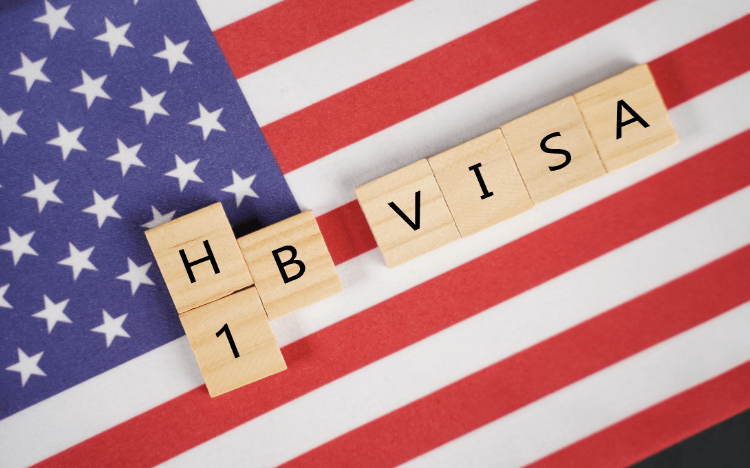- Home
- H-1B Visa
What is an H-1B Visa?
The H-1B visa is a non-immigrant visa that allows U.S. employers to temporarily employ foreign workers in specialty occupations. These occupations generally require specialized knowledge and a bachelor’s degree or higher in a related field.

Eligibility Criteria:
To be eligible for an H-1B visa, both the employer and the employee must meet certain criteria:
For Employers:
- The employer must have a valid job offer for a specialty occupation position.
The employer must demonstrate that the position requires specialized knowledge and a bachelor’s degree or higher in a related field.
For Employees:
- The employee must possess a bachelor’s degree or higher in a related field or its equivalent.
The employee’s degree must be relevant to the specialty occupation they are being hired for.
The employee must be sponsored by a U.S. employer who has a valid job offer.
Application Process:
The H-1B visa application process typically involves the following steps:
Labor Condition Application (LCA): The employer must file an LCA with the U.S. Department of Labor. This includes providing information about the job, location, wages, and attestations regarding working conditions.
Form I-129 Petition: After receiving the certified LCA, the employer submits Form I-129, Petition for a Nonimmigrant Worker, to the USCIS. This form includes detailed information about the employee, the job, and the employer.
Lottery Selection (if applicable): If the number of H-1B applications exceeds the annual cap (usually set at 65,000 with an additional 20,000 for advanced degree holders), a random lottery is conducted to select the applications that will be processed further.
USCIS Processing: USCIS reviews the petition, including verifying the credentials of the employee and assessing the job’s eligibility as a specialty occupation.
Consular Processing (if outside the U.S.): If the employee is outside the U.S., they will need to apply for an H-1B visa at a U.S. consulate or embassy.
Change of Status (if inside the U.S.): If the employee is already in the U.S. on a different non-immigrant status, they may apply for a change of status to H-1B.
Duration and Extensions:
H-1B visas are typically granted for an initial period of up to three years, with the possibility of extensions for up to a total of six years.
In certain cases, H-1B holders may be eligible for extensions beyond the six-year limit, such as if they have a pending employment-based green card application.
Dual Intent:
H-1B visas are considered “dual intent” visas, which means that holders can pursue lawful permanent residency (a green card) while maintaining their H-1B status.
Dependents:
H-1B visa holders’ spouses and unmarried children under 21 years of age can accompany them to the U.S. under the H-4 visa category.
H1-B Processing Fee:
We charge a flat H-1B visa filing fee of $1100, which includes shipping and incidentals but does not include RFE responses, if applicable. In addition, you are responsible for the USCIS filing fees associated with your case.
If after your initial consultation, you decide that an H-1B visa is not a suitable course of action, we offer a range of other immigration options.
DO YOU NEED SUPPORT !
NEWSLETTER
Subscribe to the mailing list and get the fresh content!
